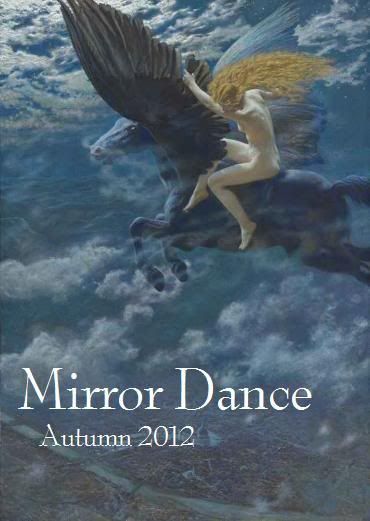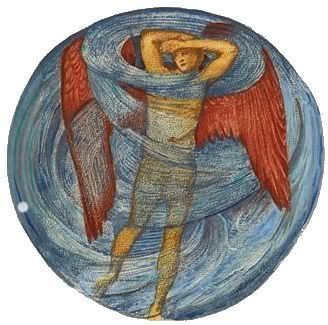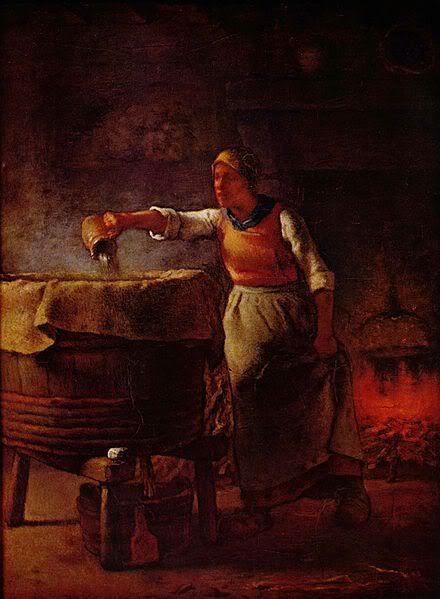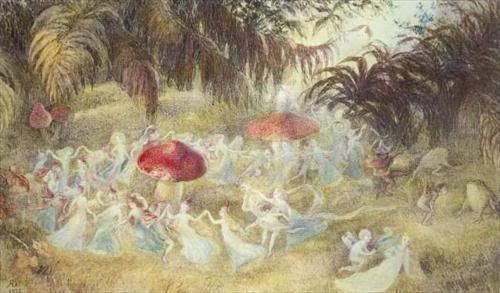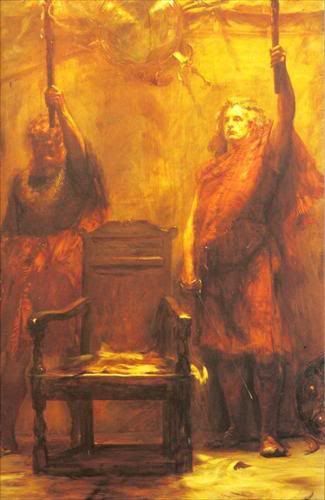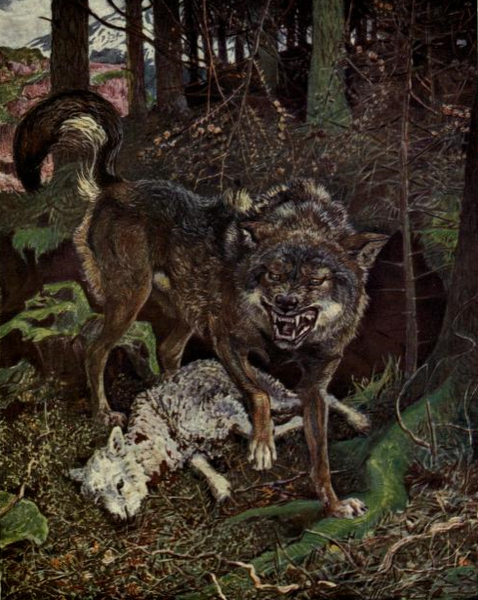Glint
by Lucien Brodeur
It happened around the same time Mom and Dad split up, and I had been staying up late with insomnia anyways. The mental images keeping me awake those nights were freeze-framed and sepia-toned: the four of us (the fourth being my younger brother Francis) on vacation, staying at an inn in Vermont where only trout was served for dinner; the four of us traveling across the country the summer we visited Grampa in Iowa, piled into in a rusty Oldsmobile diesel station wagon, listening to the
Footloose soundtrack a hundred times; the four of us again on Commonwealth Avenue in Boston at the start of the Walk for Hunger—me appearing gangly and slightly mad, and Francis looking runty and nerdish in his new glasses.
It was hard to comprehend that this unit of four would no longer exist, hard for my fourteen-year-old self to release these images. So I replayed them. It was as if a slide projector in my mind had been switched on and left unattended.
And then, one of those nights, I awoke in the blue darkness of my bedroom to the faint sound of a baby crying.
At first I thought the sound had come from under my bed or from a corner of the room, but once the cry occurred again, I realized it was coming from somewhere else in the house.
I got out of bed and went into the hallway, where a window faced out at the backyard and the woods behind it. We often forgot to close the blind before going to bed, so the white light of the moon formed shadows on the hardwood floor. Tree boughs looked like warped, slender fingers on the carpet. The rooftop of our neighbor’s house was a dark pyramid on the pale hallway wall.
That night there must have been a slight breeze outside, causing the shadow fingers to curl along the floor. Standing in the oddly lit hallway in just my boxers and Guns N’ Roses t-shirt, I shivered. It was early October, but we were not supposed to turn the heat on until November (Dad’s rule that had remained though he had moved out).
Then I heard the cry again. Not a sobbing like the kind I had heard recently coming from Mom’s bedroom; nor was it like a child who had been treated unfairly or injured while playing. It was a helpless cry. The cry a baby makes when she is hungry or lonely.
The cry had come from the office, so with great curiosity I crept down the hallway. As I did the intensity of the cry increased. Its volume was still soft, but the pauses between crying bursts shortened as the sound became more urgent.
When I reached the office doorway I clutched the battered molding and steeled myself, and then peered inside. After having played his favorite videogame again (a ridiculous one called
BurgerTime), Francis had failed to turn off the PCjr., and the machine gave off a soft electronic hum. Because he did not like the glare of the streetlight to interfere with his videogames, Francis had shut the blind in the office, so it was darker than in the hallway.
Though my stomach was fluttery something beckoned me forth, and I entered the office and walked to its middle. My feet swooshed in the fibers of the carpet. There was energy in the room—like static electricity—that made my extremities tingle. Another anguished cry called out, as if from thin air, and subsided. I scanned the room, searching for the source of the sound.
When I looked down I saw something hovering over the blue carpet. It had the luminous quality of a bright moon in the dark night sky. It was a glint of light—a crescent sliver of yellow-gold—suspended in the air above the ground, shimmering. It moved like sunlight moves over the ocean: shiny and rippling. I reached for it. The glint moved away from my hand and out of the office, into the hallway. I chased after, but it was too fast. It fluttered up toward the hatch in the hallway ceiling leading to the attic, and then—just like the baby’s cries—it disappeared.
* * *
As was the routine, Francis stared at me while we ate breakfast. He stared not out of awe or interest but to make me uncomfortable, knowing I didn’t like to communicate much in the morning. When I looked up between bites of Honey Nut Cheerios, there was that narrow, freckly face, those green eyes behind the wire-rimmed glasses, peering at me. He would widen his eyes in a sort of feigned surprise, or narrow them in a mockingly challenging way.
As Francis stared and Mom made her to-do list on a yellow legal pad, I thought back to the night before, to how the floating light had disappeared in the dark hallway, like the flame of a candle being extinguished. After seeing it I had not felt afraid. I had lain in bed the rest of the night with the slide projector in my mind on again, but this time it showed images of the night blue hallway and the darkened office, and the sliver of light that moved inexplicably through the air.
“Jules, you look kind of pale,” Mom said. “Are you feeling alright, sweetheart?”
Through the kitchen window we could see the sun beginning to rise, and as it slowly ascended, a band of gold spread over the nearby treetops. A few clouds hung in the sky like fragments of frozen smoke.
“This is going to sound strange,” I said, preparing for a sarcastic remark from Francis, “but I thought I heard something last night.” Francis turned out to be too caught up in slurping Honey Nut Cheerios-sweetened milk to make any wise remarks.
Mom looked up from the legal pad. Like Francis, she had green eyes, though hers had been heavy and bloodshot as of late.
“What’s that, sweetheart?” she said.
“I heard something weird last night,” I said. “It sounded sort of like a baby crying.”
Francis chomped a piece of triangular whole wheat toast (Mom always cut toast diagonally after it was buttered). Then he snickered.
“Stop antagonizing, Francis,” Mom said, gently putting her hand on my head in a way that was meant to be reassuring. She had been doing that since I was a kid. “I’m worried about you, Jules. I don’t think you’re getting enough sleep.”
“Stop it, Mom, I’m not a child,” I said, pushing her hand away. “You don’t have to believe me, but I heard something like a baby crying in the office last night.”
This time when I spoke, Mom’s face crinkled up a bit, almost as if in recognition of something.
“Sweetheart,” she said, “sometimes when people get really tired or stressed out they… imagine things.”
“Dad would have listened,” I said, not really believing it. I was just trying to make her mad.
“Your father doesn’t live here anymore,” she replied, her voice cold. “You’re going to have to let that go.”
I stood up from the kitchen table and threw my napkin carelessly at the cereal bowl and then stormed out in an attempt to make some kind of a statement. What a teenage drama king I was in that moment. It nauseated even me.
“Put your bowl in the sink,” Mom called after me, but I ignored her and bounded up the stairs to go get ready for school. I was still mad for not being taken seriously, but also starting to question myself a little. Maybe Mom was right. Maybe I wasn’t getting enough sleep. Maybe I had not heard a baby cry, or seen a hovering glint of light.
* * *
Coming home after soccer practice (I had hoped for better, but had merely made the freshman team), I knew something was up. Usually I entered a cold, dark house with instructions for dinner on the kitchen table, since Mom wouldn’t be home from the pre-school she worked at until six. But from outside I could see the kitchen and living room lights were on, and when I walked in it was warm (was it a miracle—not yet November but the heat was on?), and the house smelled like Mom’s tomato sauce. My first thought was of chicken parmesan, the meal Mom reserved for special occasions.
I dropped my L.L. Bean backpack off in the mudroom, kicked off my grey-blue New Balance sneakers and went into the kitchen where Francis and Mom were. Francis sat at the kitchen table with several X-Men comic books before him, talking about Wolverine as Mom tried to seem interested. She wore her red-and-white striped apron. The light in the oven was on and through the smudgy glass I could see mozzarella melting on top of the chicken parmesan. There was a glass of white wine (surely Chardonnay, the only kind Mom drank) on the marble ledge above the sink.
“What’s going on here?” I said.
Mom looked up from a pot where she had been stirring some pasta.
“Sit down, Jules, dinner is almost ready,” she said. She picked up the steaming pot and drained it into a lime green colander in the kitchen sink.
“I called in sick today, Jules,” she said, “and in a sense I was.”
As she spoke, Mom poured marinara over the pasta, which had been returned to the pot.
“I was sick,” she said, “because I was worried about the two of you. And I was thinking that it’s time I told you something.”
This got even Francis to close his comic book. Wolverine was on the cover, with his claws protruding out aggressively.
As Mom served the chicken and pasta, she picked up the glass from the marble ledge and drank the wine down in a couple of gulps. There was a corked bottle on the counter. She uncorked it and refilled her glass, all the way to the rim. It was the biggest glass of wine I ever saw her pour.
“What I have to tell you,” she said, sitting down with us and sipping from her goblet-sized glass of wine, “should have been told to you before now.”
Mom took a deep breath, as if she were about to dive into the cold blue ocean.
“You two had a sister,” she finally said.
This revelation was, on the surface, strange and surprising, but in the other dimension of understanding, the one that still happens in the brain but is different from thinking, I already knew. Somewhere in me was a memory of the image of a baby girl.
“She would have been your older sister. A while before you were born, Jules, I had a baby girl. She was very sick when she was born. She lived for two weeks, and then she died.”
Francis looked as if his jaw would drop off his face onto the linoleum kitchen floor.
Mom took another sip of the wine. As she spoke to us, she mostly looked at her wine glass or at the kitchen wall opposite from where she sat.
“Her name was Elise,” she said. “Elise Louise Boudreau. I liked how that sounded.”
“Why the fuck didn’t you tell us before?” Francis blurted. He had recently started working at Bullard’s Market, a liquor store down on Green Street, as a recycling boy, and the profanity-laden vocabulary of some of the workers there had crept into his own. Sometimes I found his use of foul language funny, but now it infuriated me. I slapped him on the side of the head.
“Don’t talk to her like that,” I growled.
Francis looked at me in surprise, holding a hand to where I had slapped his head.
“Francis, you know I hate when you talk like that,” she said, “but you are right to question it. You boys had the right to know. It’s just…”
Then she got that look I had grown accustomed to since Dad left, the one where her eyes went watery and distant; the look that told you she was sad. But she was trying to fight it. “It’s just that after she died we felt so blessed by having Jules, and blessed again with you Francis. When you two were younger, the time to tell you never seemed right. And then all that shit happened between your father and me…”
Francis had recovered enough to chisel off a piece of the chicken with his fork.
“We thought Elise was sick while I was pregnant with her. We went to doctor’s appointment after doctor’s appointment, and they knew something was probably wrong with her because she measured as very small, but nobody could tell us what it was.”
She took another sip of wine. It was half gone.
“When she was born she didn’t look right, so they took her to Children’s. A doctor there said she had an odd smell and they diagnosed her with a metabolic disease. It meant the chemicals in her body wouldn’t work. They treated her aggressively for two weeks, but after that we told them to take her off the machines. She died within a half an hour. Your father and I took turns holding her while she died. I know that sounds morbid and kind of scary, but it wasn’t. It was actually very peaceful.”
Francis was listening, but he had also taken a large bite of the chicken and was chewing intently when Mom paused and took another long sip of wine.
“It had been a while since I really thought about Elise. That was until you told me about the baby’s cry, Jules. Because Elise’s nursery was supposed to have been where the office is now.”
A little tingle went through me when Mom said that.
“I’m so upset, I don’t know if I can eat anymore of this,” Francis said, sawing off another piece of chicken with his fork and jamming it into his mouth. “Actually, it’s pretty awesome. Good job on the parm, Mom,” he said.
I had no idea how Francis could devour dinner having heard what Mom told us. True, I had not been surprised at first, but thinking about the baby’s cry coming from the office and envisioning a little baby girl that might have been my older sister made me feel a little wobbly. In a way what Mom told us was simple: we had an older sister; she was sick; she lived only two weeks; she died; the time had never been right to tell us. So in a way it was straightforward, but on the other hand there was much more to know.
“What did she look like?” I said.
Mom shook her head. She fixed her eyes on the opposite wall. “This sounds terrible, I know Jules, but I’m finding it hard to remember. It’s been a long time now, over fifteen years. We had pictures. We even had one framed. But it was somehow lost when we moved.”
The answer wasn’t satisfying.
“Where is she?” I asked.
For a while, Mom stared at the dregs of Chardonnay at the bottom of her wine glass.
* * *
After dinner Mom drove us to Medfield Cemetery. We went through the wrought iron entrance gate and took a winding road among the hills covered in yellowing grass and fading headstones. On top of a hill at the far side of the cemetery, Mom stopped the Stanza and we got out. It was chilly. Though the sun had set a few hours prior, there was still a faint purple glow outlining the landscape to the west. We walked past several rows of headstones, finally coming to one where there was a small white limestone marker, before which Mom kneeled. She crossed herself and closed her eyes.
My eyes were tearing. The late October wind seemed to blow through us, causing my vision of the headstone to have a gauzy effect as I read:
Elise Louise Boudreau
October 11, 1972 – October 25, 1972
Had Mom, in her preoccupied state, failed to notice? I tried doing the numbers in my head. I did the subtraction once, and then again, and then a third time.
“Today is October tenth,” I said. Francis stared off into space and Mom still had her eyes closed.
October tenth, 1988, I thought.
“She would have been sixteen tomorrow,” I said.
* * *
I went to bed that night clutching an old hockey stick (at some point its flimsy blade had been duct-taped) in one hand, and a Swiss army knife that my friend Goose had given me at summer camp in the other. These items, I knew, would be useless against a malevolent spirit—if that was what the glint was—but they were a comfort.
At camp Goose had also told me that the witching hour was from midnight until three in the morning, so I was determined to stay awake during that span of time. I popped
Appetite for Destruction into my Walkman. With the opening strains of “Nightrain” blaring in my ears and the light still on in my room, I could almost convince myself it was still daytime, could almost avoid thinking about the cries of a baby and the floating crescent of light.
I watched the minutes pass on the digital face of my alarm clock, confident in my sleep-evading abilities. Despite my best efforts, just before midnight I began to succumb, entering into a sleep-like state, when the slide projector in mind came to life.
This time the slide projector showed a shadowy shape—an intruder—that had been hiding in the garage, and when midnight came it arose and crept into Mom’s room and punctured her neck, leaving her bleeding in bed. It knew that Francis and I were upstairs, vulnerable and helpless.
In my mind’s eye the intruder stalked down the hallway, opening Francis’ bedroom door. Francis, who slept so soundly, never saw the blade coming. The dark figure stabbed Francis in the neck with a steely knife, and my brother’s blood gushed out, pooling on the tan carpet of his bedroom floor and spreading into the hallway. Soon, blood layered the hardwood floor of the hallway, dark and viscous. And then, somehow, it wasn’t blood after all.
It was disease. It was the disease that had killed Elise. It was vile. What else would take the life of a baby? And it was freezing on the floor. It was icing over, becoming hardened black disease that would destroy our house.
“No,” I said, shaking myself out of the sleep-like state. The room was now night blue, and my Walkman had been turned off and placed on the bureau. Mom must have checked on me at some point. Doing so was one of her late-night tendencies.
I climbed out of bed and stood in front of the bedroom window, twisting open the blind with the wooden lever. Outside, ribbons of moonlight streamed through the tree limbs, several of which were bare. Seeing the streaks of light reminded me of something Dad had told me when I was in kindergarten, when I was frightened of going to sleep in the dark.
“How do I not be afraid?” I had asked him.
“Well, even though it’s mostly dark in your room, you still have your night light on. Just look at the light,” he had said. “Just concentrate on that.”
I closed the blind, the memory dissolving. Turning toward bed, I was surprised to discover the glint in my room, hovering a few feet above my head. It was still mysteriously luminous, bobbing and weaving in the air. There was something nearly playful about it.
I reached out, holding my palm upwards. The glint descended in a spiral motion, and when it approached my hand I felt a tingly energy. But it wasn’t frightening. Instead, a sensation of warmth and relief washed over me. It was a feeling of which I was reluctant to let go.
Then the glint darted from my hand, floated upwards toward the top of the bedroom door, flattened itself, and slipped through the crack between the door and the ceiling. “Holy shit,” I said, stupidly amazed by its shape-shifting ability. I threw open the bedroom door and ran into the hallway. There it was in full crescent shape again, its spark iridescent. It again fluttered up toward the hatch leading to the attic and halted, spinning in place, apparently waiting. “Holy shit,” I said again.
I pounded on Francis’ bedroom door and pushed it open, noticing that his alarm clock read half past midnight.
“Francis get up,” I hollered. “You gotta see this.”
He rubbed his bleary eyes and put on his wire-rimmed glasses and hurried out into the hallway. I pointed at the glint. Francis blinked, registering confusion.
“It wants into the attic. We better let it up there before it burns the hatch!” I whisper-yelled, a little afraid but also a little giddy.
Francis looked to where I pointed at the ceiling and blinked again.
“Have you lost your damn mind?” he said.
I leaped up and snagged the string tied to the hatch and pulled it down, lowering the built-in ladder and placing the bottom of its extendable legs onto the hallway floor. The glint, which had moved sideways to avoid being hit by the hatch, now flittered into the attic. I followed it, rapidly climbing up the ladder.
I got to the top of the ladder and entered the attic where it was cold, and the ragged pink strips of insulation between the rafters gave off a musty smell. A bit of blue light seeped in through a pinhole ventilation system on the far wall.
“Get up here, Francis,” I said.
“You’re a psycho,” he whisper-shouted back, but I heard the ladder squeak when he started to climb.
At the far side of the attic the glint floated over some cardboard boxes that had been crammed in the corner. Its light revealed the decrepit condition of the boxes, layered with dust and sagging from old age. I advanced toward the glint, which gravitated toward one box in particular. The old floorboards creaked, and I could hear Francis’ breathing and footsteps behind me.
I stopped at the box over which the glint hovered. The box was bound together by some old packaging tape. Realizing I had been clutching the Swiss army knife Goose gave me all along, I pried out the main blade, punctured the tape, and slit open the box.
Just when I did, the glint began to drift upwards towards the top of the tall attic ceiling. It was going away, I could tell. “Please don’t,” I said. But the little slice of fire picked up speed, and then seemed to shatter the attic ceiling with golden light. Even Francis saw it.
“What was that?” he cried out.
Though I was grateful to Francis for accompanying me, I was more distracted by the contents of the box. There was something rectangular inside, wrapped in decaying newspaper. I ripped the paper off, discovering a framed picture of some kind. But after the glint’s departure the attic went dark, so I could only see a vague shape in the picture.
Then the attic light, a lone bulb screwed into a socket in the ceiling, was suddenly clicked on.
“Boys, what’s going on in here?” Mom said, and it was reassuring to hear her voice too, though what I was looking at was far more interesting.
It was the framed photograph of a baby. She was very small. Some printing under her picture stated that she was four pounds and three ounces. Her eyes seemed set too closely together, and her head seemed too large for her little body; and in all she was misshapen. But she was beautiful.
“I haven’t seen that picture in a long time,” Mom said.
She was next to us. She put one hand on Francis’ head and the other on mine. For the first time in a while, I didn’t push her hand away.
“I guess that wasn’t lost after all,” she said.
Francis read some of the printing underneath the picture out loud. “Elise Louise Boudreau. Born October 11, 1972.”
“Like you told us, Jules,” Mom said, “she would have been sixteen today.”
Francis nodded. “She wanted us to know her,” he said.
“And then,” I said, considering the flash of golden light I had seen at the top of the ceiling, which had shone so brightly and disappeared so quickly, “she needed to be let go.”
And though I could detect some of the sad look in Mom’s face, she smiled.
That was a long time ago, but I still think about Elise. As I am driving to work early in the morning, I sometimes see light from the rising sun glint in the dark maples and oaks in the distance. Then, I am reminded of a light that appeared briefly before me when I was fourteen. Of course, I can’t help but think of a baby, or a daughter—or a sister—that might have been. But I do smile.
* * *
Lucien Brodeur is a high school English teacher who lives in West Roxbury, Massachusetts. When not grading essays or indulging an impulse to write, he enjoys spending time with his wife and their two boys. He graduated from Emerson College with a BFA in Writing and Literature and holds a Master's in Teaching English from Fordham University. His short stories have appeared in
The Four Cornered Universe and
Eunoia Review.
What inspires you to write and keep writing?
I really like the challenge and the creativity and the personal expression involved in the writing process. It has been an important part of my life since I started writing horror stories in sixth grade. Though the urge to write subsided a bit when I was in my mid-to-late twenties, it returned in this last decade and I am very glad for that.
